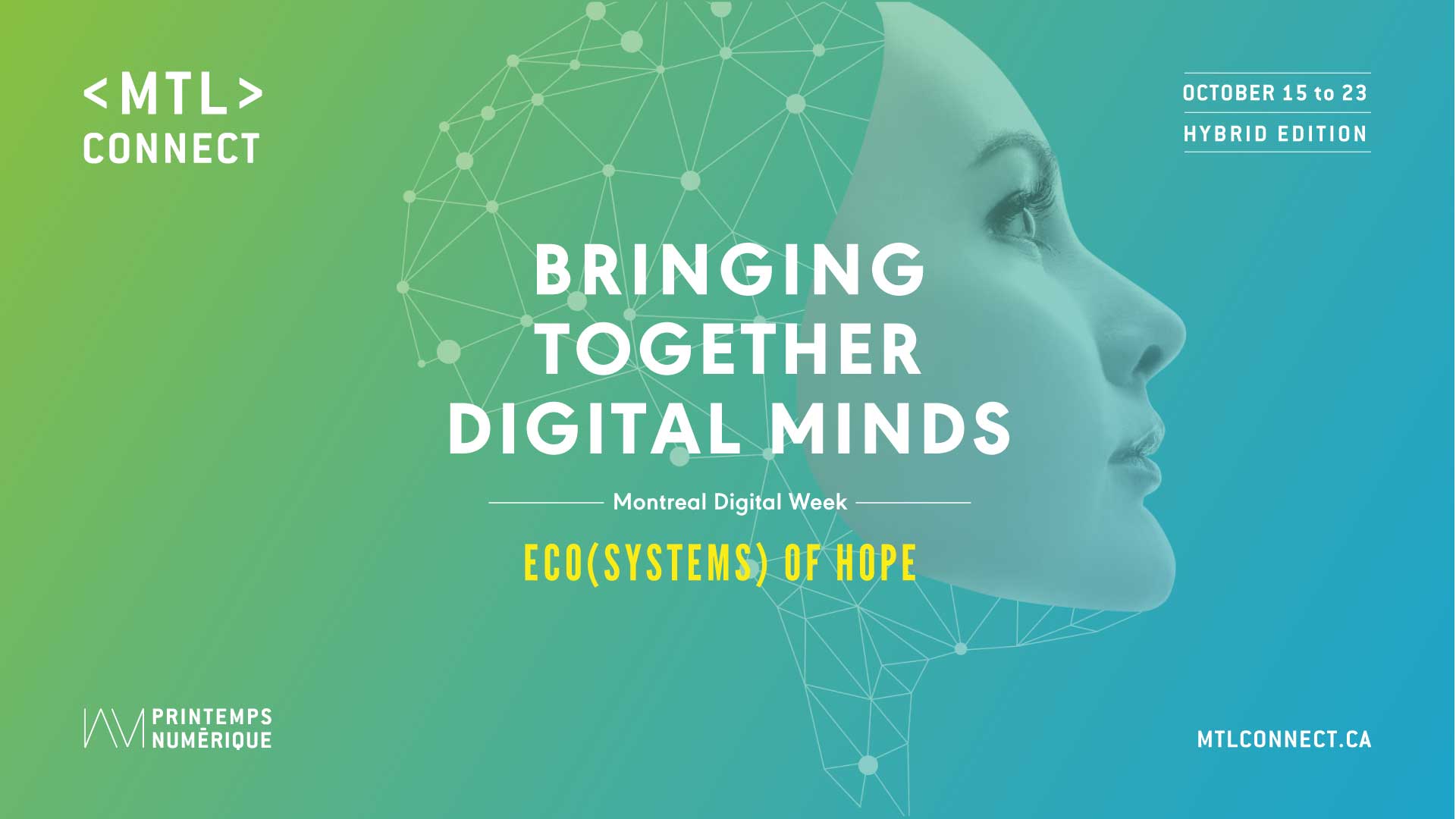The international event MTL Connect, taking place from October 15 to 23, aims to look across the board at the main questions related to digital development, focusing on its economic, social, cultural and environmental impacts in various sectors of activity.
For its 4th edition, MTL Connect: Montreal Digital Week is shaking up ideas with the central theme ECO(Systems) of Hope and a six-axis program that focuses on a desirable digital environment generating wealth and resilience for our ecosystems.
One of these themes, Resilience & Future of the city, invites us to question the contribution of technological innovations to face the consequences of climate change. What role can digital technology play in the better design of ecological policies? Which technologies should we turn to in order to foster a socially responsible ecological and energy transition?
To mark the kick-off of this event, Érudit offers a selection of open access articles that explore different ways of understanding the city. Several texts examine the resilience of cities in the face of climate change, globalization, or in the reconstruction of Lac-Mégantic. One of them describes the movements of reappropriation of urban space that are taking shape through citizen agriculture initiatives. Still others explore viable avenues for combining urban development with sustainable development. Finally, some define the notion of the creative city and how creativity can be used to take ownership of the city.
Enjoy your reading!
Selection of articles
Black, R. E. (2013). Taking Space to Grow Food and Community: Urban Agriculture and Guerrilla Gardening in Vancouver. Cuizine, 4(1). https://doi.org/10.7202/1015492ar
Cohendet, P. & Zapata, S. (2009). Innovation and Creativity: Is there economic significance to the creative city ? Management international / Gestiòn Internacional / International Management, 13, 23–36. https://doi.org/10.7202/037502ar
Gilbert, L. (2018). The Crisis After the Crisis: Neoliberalized Discourses of Urgency, Risk and Resilience in the Reconstruction of Lac-Mégantic. Revue générale de droit, 48, 155–175. https://doi.org/10.7202/1047376ar
Hannigan, J. (2013). Analyser les villes et le changement dans une ère de mondialisation : deux points de vue divergents. Sociologie et sociétés, 45(2), 45–62. https://doi.org/10.7202/1023172ar
La Branche, S. (2011). La gouvernance climatique face à la mobilité quotidienne. Le cas des Lyonnais. Environnement urbain / Urban Environment, 5, 10–23. https://doi.org/10.7202/1005874ar
Labrie, M.-P. (2020). Revendiquer le droit à la ville à travers la création artistique. Nouvelles pratiques sociales, 31(1), 111–128. https://doi.org/10.7202/1069917ar
Mancebo, F. (2011). La ville durable est-elle soluble dans le changement climatique? Environnement urbain / Urban Environment, 5, 1–9. https://doi.org/10.7202/1005873ar
Sadia, C. (2014). Risque climatique et réactivité des populations urbaines vulnérabilisées face à la montée des eaux de mer à Gonzagueville, Abidjan (Côte d’Ivoire). VertigO, 14(1). https://id.erudit.org/iderudit/1027969ar
Saint-Laurent, D. (2000). Approches biogéographiques de la nature en ville : parcs, espaces verts et friches. Cahiers de géographie du Québec, 44(122), 147–166. https://doi.org/10.7202/022900ar
Sénécal, G. & Saint-Laurent, D. (1999). Espaces libres et enjeux écologiques : deux récits du développement urbain à Montréal. Recherches sociographiques, 40(1), 33–54. https://doi.org/10.7202/057243ar
